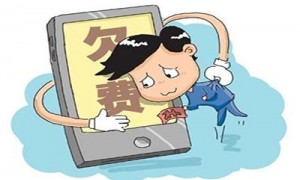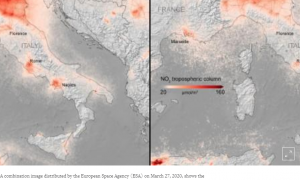Fifty-six-year-old exorcist Kansho Aizawa (R) holds a spiritual cleansing ritual for a woman at a temporary house in Higashimatsushima, Miyagi prefecture, February 21, 2013, ahead of the second-year anniversary of the March 11, 2011 earthquake and tsunami.
In a society wary of admitting to mental problems, many are turning to exorcists for help.
Tales of spectral figures lined up at shops where now there is only rubble are what psychiatrists say is a reaction to fear after the March 11, 2011, disaster in which nearly 19,000 people were killed.
"The places where people say they see ghosts are largely those areas completely swept away by the tsunami," said Keizo Hara, a psychiatrist in the city of Ishinomaki, one of the areas worst-hit by the waves touched off by an offshore earthquake.
"We think phenomena like ghost sightings are perhaps a mental projection of the terror and worries associated with those places."
Hara said post-traumatic stress disorder (PTSD) might only now be emerging in many people, and the country could be facing a wave of stress-related problems.
Shinichi Yamada escaped the waves that destroyed his home and later salvaged two Buddhist statues from the wreckage. But when he brought them back to the temporary housing where he lived, he said strange things began to happen.
His two children suddenly got sick and an inexplicable chill seemed to follow the family through the house, he said.
"A couple of times when I was lying in bed, I felt something walking across me, stepping across my chest," Yamada told Reuters.
Many people in Japan hold on to ancient superstitions despite its ultra-modern image.
Yamada, like many other people in the area, turned to exorcist Kansho Aizawa for help.
Aizawa, 56, dressed in a black sweater and trousers and with dangling pearl earrings, said in an interview in her home that she had seen numerous ghosts.
"There are headless ghosts, and some missing hands or legs. Others are completely cut in half," she said. "People were killed in so many different ways during the disaster and they were left like that in limbo. So it takes a heavy toll on us, we see them as they were when they died."
In some places destroyed by the tsunami, people have reported seeing ghostly apparitions queuing outside supermarkets which are now only rubble. Taxi drivers said they avoided the worst-hit districts for fear of picking up phantom passengers.
在两年前发生那场席卷日本东北部的海啸后,现在一些幸存者认为自己能看到鬼魂。
在日本社会,人们一般都不愿承认自己有心理问题,因此许多人向驱鬼师寻求帮助。
民间谣传,有幽灵在原来是商店、如今只剩下一堆瓦砾的地方排队。精神病医生认为这种鬼故事是人们的灾后恐惧反应。2011年3月11日发生的那场大灾难,让近1.9万人丧生。
石卷市精神科医师原敬三说:“人们声称见到鬼魂的地方大多是完全被海啸冲毁的地方。”石卷市是日本那次近海地震所引发海啸的重灾区之一。
“我们认为像见鬼等现象,也许是对人们关于受灾区的恐惧和忧虑的一种心理折射。”
原敬三称,创伤后压力心理障碍症也许如今才在很多人身上出现,但日本可能将面临一波由压力导致的问题。
山田真一从摧毁居所的海啸中逃出,后来在废墟中抢救出两尊佛像。但据山田说,当他把佛像带回自己的临时住房时,怪事开始接连发生了。
他说他的两个孩子突然生病了,而且屋内似乎有一股莫名的寒气一直尾随着他的家人。
山田告诉路透社记者说:“好几次我躺在床上的时候,感到有东西穿过我的身体,踩透我的胸膛。”
尽管日本拥有超现代化的形象,但许多日本人依然迷信古老的东西。
跟这一地区的许多其他人一样,山田也向驱魔师相泽观章寻求帮助。
56岁的相泽身穿黑色毛衣和长裤,戴着珍珠耳坠。在她家采访时,她说自己看到过很多鬼。
“有无头鬼,有的没手或没脚。还有的身体被削掉了一半。”她说,“灾难中人们以许多不同的方式丧命,他们在地狱的边缘仍是这种形态。所以这对活人的心理造成了重创,我们看到的是他们死时的样子。”
在遭到海啸破坏的一些地区,有民众报告说看到鬼魂在已经变成废墟的超市外面排队。计程车司机说,他们避免把车开到重灾区,因为害怕载到幽灵乘客。







